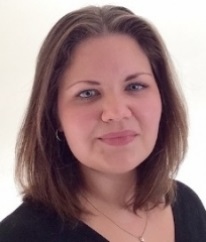
Dr Gemma Ryan
Dr Gemma Ryan, is an Open University (OU) lecturer and registered adult nurse. Her passion for both means she takes the unusual step of juggling the two roles together – making her quite a rare entity. Here she explains how and why she combines the two and the benefits it brings to her students.
What’s the best thing about combining teaching and practice?
I like to have my cake and eat it! When I started in education I didn’t work in practice for about nine months and I very quickly started to miss that patient contact. The very reason I wanted to go into nursing in the first place was because I wanted to make a difference, and whilst you can do that in education, it’s often at arm’s length. The best thing about combining both is that I can still fulfil my desire to help people and make and impact, whilst also passing on that experience and knowledge to others through teaching – it’s the best of both worlds!
What areas of nursing have you worked in?
I have been lucky to work in a variety of different areas throughout my nursing career so far. When I was newly qualified I worked as a Community nurse, it was such a varied and interesting role. It involved visiting people in their own homes, a lot of pressure ulcer care and changing dressings, also diabetes care and working out of GP surgeries where I would look at things like unusual wounds, post-surgical care, right through to ear syringing. I then moved to the acute sector to work in day case and endoscopy, which involved minor procedures and investigations such as colonoscopies. We also did something called ERCP, which is where we can remove gallstones with a camera rather than doing it surgically – it’s a specialist procedure and we did a lot of them. I also worked for some time in general surgery in a private hospital which was extremely diverse. I left endcosopy to pursue my teaching aspirations and during this time that I moved to elderly care. Once I had qualified and experienced teaching, I returned to the NHS as a research nurse, research associate and research manager; followed by some work on service improvement. This set me with the skills and knowledge to move into higher education teaching.
How and why did you become an OU tutor?
I applied to be a tutor while I was teaching at the college where I gained my PGCHE. I had done my degree top up with the OU in Health and Social Care and had a really positive experience. I have been a tutor at the OU now since 2008/2009. Last year, I became a central academic/lecturer which has been a goal of mine for many years.
How many students are you responsible for and what does your tutor role involve?
In my role as practice tutor, I currently have seventeen students at various stages of their nursing degree, some just finishing and others on level two. For my associate lecturer post, I run online tutorials and mark assessments; supporting a wide range of students with very different aspirations. In my capacity as practice tutor, I also go out and visit my students working in their field. Over an 18 month period I will visit a minimum of three times and its nice if they come through the stages with me as I get to see them come through to the end. My first group as a practice tutor is coming through now and will graduate in September, which is exciting.
What do you think are the benefits to your students as a lecturer still working in practice?
Things change a lot in nursing so still working in practice means I am up to date and current. It means that when I am working with the students or writing the materials, I really think about what they need to know and relevant skills they need. Students seem to like that I still work in practice and I can use current examples of things I have been doing recently to inform content I am working on. It’s also really helpful that I have a supportive line manager who recognises the important role it plays too.
How do you balance all your different roles?
I try to keep my roles at the OU and as a nurse quite separate. As well as being a tutor I am also a central academic, which means I am responsible for writing or updating course materials (for example), I also undertake research such as the PRISM project (Professional Regulation In Social Media). In order to incorporate working clinically I will take leave or work on a Saturday. I’d love to be able to do more practice work but it takes a lot of planning and I have to balance my commitments carefully, which is probably why there aren’t many of us who do both!
What makes OU nursing students unique?
I’ve taught both on campus and at the OU via distance learning and I think one of the big sells for our OU nurses is that they are invested in their organisation because they have worked in the field prior to studying for their degree. Not only does this mean they understand healthcare better, but it makes them self-motivated and autonomous learners as they take responsibility for their own learning – they know its hard work and they are usually very determined. The compliments we get from mentors about OU students are always so positive because they are self – starters, they have to be, they are good (or certainly become better) at time management and because they have worked in practice (often for many years) they also understand patients.
Tell me an interesting fact about yourself
In my own time, I am an OU student myself studying a graduate entry law degree! I said when I finished my doctorate that I’d do something that interested me but I think it complements nursing quite well with regards to learning about legal and ethical issues. I’ve just finished my first year so I still have a little way to go! I would definitely recommend taking up OU study, it’s difficult but worthwhile; I wouldn’t actually be where I am now if it were not for the OU.



